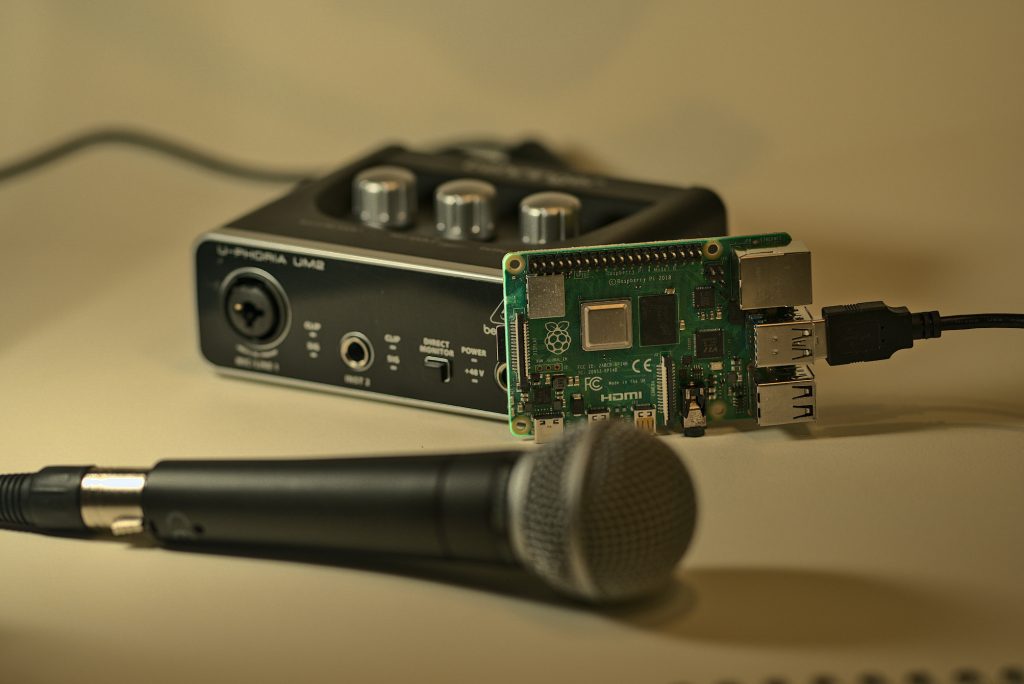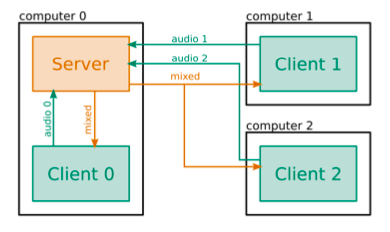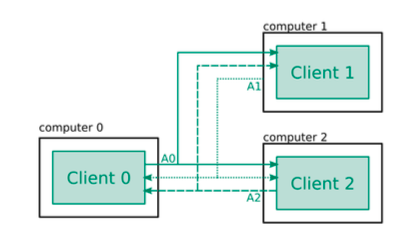The Institute of Embedded Systems (InES) High Performance Multimedia group generated a low latency version of the classic Jamulus music rehearsal application for the Raspberry Pi 4

The classic Jamulus is an open source application for music groups who want to rehearse over the internet. Especially with the global pandemic, Jamulus is a great solution for bands and choirs to rehearse from home.
With the Jamulus-Direct solution, the Institute of Embedded Systems reduces the latency of the audio connection compared to the classic Jamulus. The low audio latency is achieved through multiple peer-to-peer connections. This means that each participant is connected to the other members of the group via a dedicated connection. The audio no longer needs to be sent via an audio server, which reduces the latency.
Peer-to-Peer communication in Jamulus Direct reduces latency
The figure below shows the audio transmission in a classical server based session with three clients. Three computers run a client software. Computer 0 starts a client and a server. Each client sends their own audio to the server. The audio is mixed together at the server and sent back to the clients. However, the server topology shown below introduces latency because all data has to make a detour over the server.

Therefore, in Jamulus direct, a peer-to-peer topology eliminates the detour via the server (see figure below). Each participant in a peer-to-peer system exchanges its data with each other participant. Peer-to-peer is therefore the preferred structure to achieve the lowest possible latency.

This setup ensures the lowest possible latency between each device.
To achieve low latency, a few challenges had to be mastered to get a well functioning system.
For instance, that peer to peer connections usually are blocked by the firewall of the network router and therefore need a mechanism to open these ports on the firewall.
A further issue is the management of the session. In server based systems, the server usually manages the session. It is the contact point for new clients to register to join the session and also to unregister when leaving.
The peer-to-peer audio transmission showed audio latencies under 30 milliseconds for two locations, with a ping time of 13 milliseconds.
A detailed paper of Jamulus Direct can be downloaded here.
Jamulus-Direct is written for the Raspberry Pi 4 and achieves high quality audio utilizing a USB audio card connected via the RPI4 USB interface. Every audio card with available Linux drivers is suitable (Tested with Focusrite Scarlet 2i2 and Behringer U-Phoria UM2)
There are two ways you can use Jamulus-Direct:
1.) Burn Jamulus-Direct onto a SD-card and dedicate your Raspberry Pi for Jamulus-Direct
(Instructions for dedicated SD-card installation)
2.) Use Jamulus on your existing Raspberry Pi4 with Raspberry Pi OS already installed
(Instructions with already installed Raspberry Pi OS)